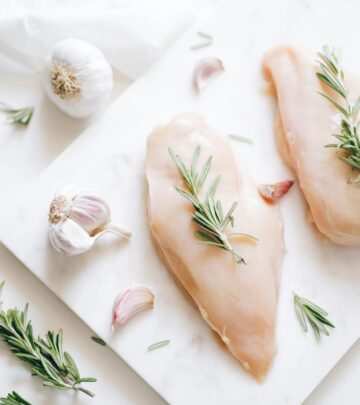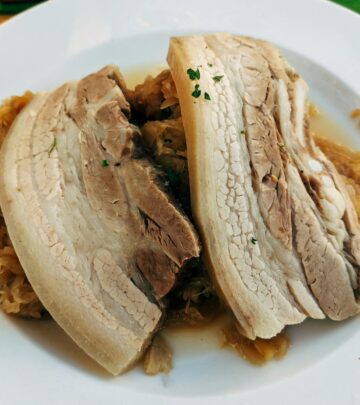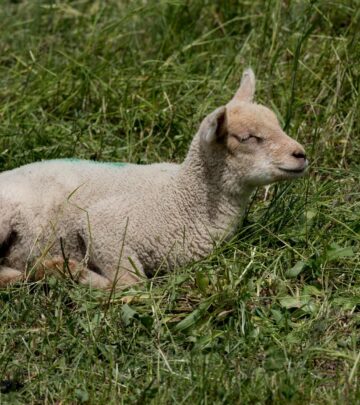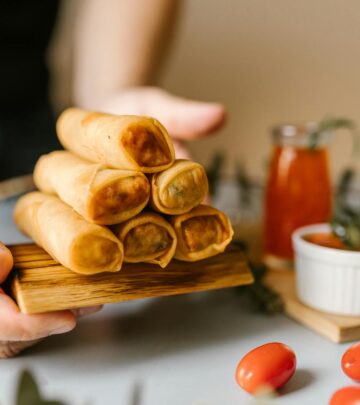The Best Fruit Trees to Grow in Tennessee Yards and Gardens
A practical guide to planting a backyard orchard, from variety choice to harvest.

With its mild four-season climate and generous rainfall, Tennessee stands out as one of the most bountiful regions for home fruit growers in the United States. Whether you dream of fresh apples plucked from your backyard or want peaches for homemade pies, Tennessee’s USDA Zones 5b to 8a create near-perfect conditions for a vast variety of fruit trees. In this comprehensive guide, we cover the best fruit trees for Tennessee gardens, discuss how to select the right varieties, and provide key growing tips so every yard can become a miniature orchard.
Understanding Tennessee’s Growing Conditions
Before choosing fruit trees, it’s important to understand why Tennessee is such fertile ground for home orchards:
- Mild Climate: Winters are generally cool without severe freezes, while summers are warm but not oppressively hot.
- Consistent Rainfall: Precipitation is spread throughout the year, ensuring trees have regular access to moisture.
- USDA Zones 5b–8a: This zone range allows for a wide variety of temperate and some subtropical fruit trees to thrive.
As a result, most fruit trees grown in the South or Midwest do well here, provided you pick the right cultivars and follow essential plant care practices.
Best Fruit Trees for Tennessee
Below, we explore the top fruit trees that perform well across Tennessee, with specific recommendations and growing advice for each.
Apple Trees
Apples are a classic choice, appreciated for their adaptability, beautiful blooms, and wide variety of flavors and uses. Tennessee’s winters offer enough chill hours—typically 500–600 for most varieties—to ensure reliable fruit production.
- Popular Varieties:
- Granny Smith: Suitable for USDA Zones 6–9, needs just 400 chill hours and is self-pollinating—though yields are better with cross-pollination.
- Honeycrisp: Known for its crisp texture and balanced flavor, adapts well to cooler parts of Tennessee.
- McIntosh, Gala & Fuji: These are also popular and suitable for home orchards.
- Growing Tips:
- Plant in full sun with well-drained soil.
- Irrigate regularly—especially when trees are young and during dry spells.
- Prune for strong structure and to maximize fruit production.
Peach Trees
Peaches fill Tennessee gardens every summer with sweet, fragrant fruit. They require moderate chill hours (typically 500–1,000) and prefer the warm summers Tennessee provides.
- Popular Varieties:
- Red Haven: Cold-hardy with juicy, flavorful fruit.
- Elberta: Produces large, classic peaches suited for eating fresh or preserves.
- Growing Tips:
- Full sun location and fertile, well-drained soil are vital.
- Prune every winter to maintain a vase shape and remove dead wood.
- Protect blooms from late frosts—planting on a slight slope helps cold air drain away from trees.
Pear Trees
Pears are robust, disease-resistant, and an excellent low-maintenance choice for home growers. Tennessee’s climate suits both European and Asian pear types.
- Recommended Varieties:
- Bartlett: Classic sweet pear; reliable producer.
- Kieffer: Especially resilient to disease and heat.
- Asian Pears: Crisp and juicy, excellent for fresh eating.
- Growing Tips:
- Provide cross-pollination—plant two or more varieties.
- Fertilize lightly in early spring.
- Check trees routinely for fire blight (especially in humid summers).
Plum Trees
Plums bring color, fragrance, and delicious fruit to the garden. American and Japanese plum types both perform well in Tennessee’s climate.
- Notable Varieties:
- Ozark Premier, Methley, and Santa Rosa are all excellent options.
- Growing Tips:
- Japanese plums tend to bear earlier and heavier crops than European types.
- Generally self-fruitful, but yields improve with cross-pollination.
- Thin fruit in early summer for best size and flavor.
Cherry Trees
Cherries—while more challenging—can be grown in Tennessee, particularly sour cherry varieties, since they tolerate the region’s humidity better than sweet cherries.
- Varieties to Try: Montmorency (sour), Stella and Black Tartarian (somewhat more tolerant sweet types).
- Full sun and well-drained soils are essential, as cherries are prone to rot in heavy, wet soils.
- Netting is often needed to protect ripening fruit from birds.
Fig Trees
Fig trees thrive in warmer parts of Tennessee, offering a Mediterranean flair and fruit that ripens late in summer or early fall.
- Best Varieties: Celeste, Brown Turkey, and Chicago Hardy perform well in the region.
- Plant in a warm, south-facing spot and mulch heavily in winter to protect roots from occasional deep freezes.
- Figs thrive with minimal pest problems and require only pruning for shape and size.
Persimmon Trees
American persimmons are well-adapted, drought-tolerant, and can be grown with ease in many Tennessee yards. Their fruit—orange and sweet after the first frost—attracts both people and wildlife.
- Look for native American types, such as Prok or Yates.
- Choose a sunny location with deep, well-draining soil.
- Trees are usually dioecious (male and female flowers on separate trees), so two are needed for fruit set.
Pawpaw Trees
Pawpaws are native to Tennessee and produce unique, custard-like fruit with a tropical flavor. They thrive in partial shade, making them excellent for woodland edges or under taller trees.
- Plant at least two for cross-pollination and good fruiting.
- Young pawpaws benefit from shading in their first few years.
- Once established, they require little care.
Other Fruit Tree Options
- Mulberry: Tolerates drought and produces abundant, sweet berries for eating fresh or in preserves.
- Sugar Apple (Sweetsop): More of a tropical species, but with care and container culture, can be grown indoors or outdoors during hot summers in Tennessee. Produces creamy, sweet fruit for adventurous gardeners.
Choosing the Right Fruit Tree Varieties
When selecting fruit tree varieties for your Tennessee garden, keep these factors in mind:
- Chill Hours: Choose varieties with chill requirements matching your zone’s typical winter temperatures.
- Disease Resistance: Some varieties are more resistant to local pests and diseases—look for these when possible.
- Pollination Needs: While some fruit trees are self-pollinating, many benefit from or require a pollinator of a different variety for best fruit set.
- Space: Consider mature size and spacing needs when planting near structures or power lines.
| Fruit | Best Varieties for TN | Pollination | Special Notes |
|---|---|---|---|
| Apple | Granny Smith, Honeycrisp | Self or cross | Needs chill hours |
| Peach | Red Haven, Elberta | Self | Prune annually |
| Pear | Bartlett, Kieffer | Cross | Watch for fire blight |
| Plum | Ozark Premier, Methley | Self or cross | Thin fruits |
| Cherry | Montmorency, Stella | Varies | Needs bird netting |
Planting and Caring for Fruit Trees in Tennessee
Proper planting and early care set the stage for years of productivity:
- Site Selection: Choose a spot with at least 6–8 hours of sunlight per day and well-drained soil.
- Planting: Plant in early spring when the soil is workable. Dig a hole twice as wide as the root ball, loosen compacted soil, and plant at the same depth as in the nursery pot.
- Watering: Water deeply immediately after planting, then maintain even soil moisture as roots establish—especially the first year.
- Pruning: Prune to open the canopy, remove crowded branches, and encourage strong, balanced growth. Winter is the classic time for dormant tree pruning.
- Fertilizing: Feed trees lightly in early spring, avoiding excess nitrogen, which can spur leaf growth at the expense of fruit.
Common Challenges for Tennessee Home Orchards
- Lack of Pollination: Plant two or more varieties where cross-pollination is needed.
- Pests and Diseases: Monitor for aphids, scale, fire blight (pears), and fungal diseases. Use organic methods or recommended sprays as needed.
- Late Spring Frosts: These can damage blossoms. Plant cold-sensitive varieties on slopes, which reduce frost settling.
- Overwatering or Poor Drainage: Avoid areas where water pools, as this leads to root rot and tree decline.
Tips for a Thriving Tennessee Orchard
- Mulch around trees to conserve moisture, prevent weeds, and regulate soil temperature.
- Thin fruitlets in early summer for larger, higher quality fruit.
- Keep grass and weeds cleared from the trunk area to limit pest habitat.
- Regularly inspect trees for signs of stress or harvesting problems—early action makes for healthier orchards.
Frequently Asked Questions (FAQs)
Q: What is the best time to plant fruit trees in Tennessee?
A: The best time is early spring, just before bud break, or fall after leaf drop if soil is not frozen.
Q: Do I need more than one tree for fruiting?
A: Some fruit trees are self-pollinating (like many apples and peaches), but most benefit from cross-pollination with a different variety for best yield and fruit quality.
Q: How much space do I need between fruit trees?
A: Standard fruit trees need 20–30 feet between trees; dwarf varieties require 8–12 feet. Adequate spacing ensures good airflow and sunlight penetration.
Q: How long does it take to harvest fruit after planting?
A: Most fruit trees produce harvestable crops in 2–5 years, depending on species and variety.
Q: What are the easiest fruit trees for beginners in Tennessee?
A: Apple, pear, and fig trees are all excellent for beginners—they’re hardy, low-maintenance, and reliable producers.
Conclusion
Tennessee’s balanced climate offers gardeners the luxury of growing a diverse assortment of fruit trees. With the right varieties, a little care, and a watchful eye for seasonal challenges, anyone can enjoy a fruitful harvest year after year—and transform their backyard into an edible paradise. Start your orchard with proven favorites, experiment with a few specialty types, and relish the local, fresh flavors only homegrown fruit can offer.
References
Read full bio of Srija Burman
















Community Experiences
Join the conversation and become a part of our empowering community! Share your stories, experiences, and insights to connect with other beauty, lifestyle, and health enthusiasts.